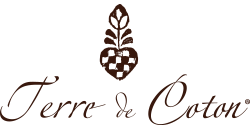This personal connection enhances reader loyalty and fosters a dedicated fanbase.
Brand Visibility
Brand visibility in the dystopian genre plays a crucial role in attracting both readers and investors. By examining these factors, potential investors and strategic partners can better understand the opportunities within this thriving literary segment.
User Growth
In recent years, the readership of dystopian literature has expanded considerably. Books like George Orwell’s “1984” and Margaret Atwood’s “The Handmaid’s Tale” have maintained relevance through various adaptations and cultural discussions. Potential approaches include: dystopian literature books popular dystopian books
- Engagement Initiatives: Hosting online discussions, webinars, and author interviews can keep readers engaged and provide deeper insights into the texts.
- Interactive Experiences: Developing interactive content, such as discussion guides and reading challenges, can enhance the reader’s experience and encourage repeat engagement with the material.
- Community Building: Establishing online forums or social media groups dedicated to classic dystopian literature can foster discussions and create a loyal reader base.
- Cross-Promotion: Collaborating with contemporary dystopian authors or related genres can attract new readers who may not have previously explored classic texts.
Conclusion
Classic dystopian literature presents a unique opportunity for strategic investors and partners in the literary sector. Furthermore, the integration of classic dystopian novels into popular reading apps enhances discoverability and encourages user engagement through features like recommendations and personalized reading lists.
Brand Visibility
Brand visibility for classic dystopian literature is strengthened through various marketing strategies and partnerships.
Furthermore, services like Audible and Kindle have seen exponential growth, allowing readers to consume content at their convenience. Dystopian novels, often falling within these categories, are positioned to capture a substantial portion of this growth. These narratives resonate with contemporary societal concerns, allowing authors to tap into the collective psyche of their audience.
Investors should consider how to leverage these marketing strategies to enhance the visibility of new titles and authors within the dystopian genre. top dystopian novels dystopia books
Long-Term Retention Strategies
Retention strategies are vital for sustaining interest in dystopian novels over time. This can include behind-the-scenes looks at the writing process, thematic discussions, and interactive content that invites readers to share their interpretations. The ability to read on-the-go has increased engagement and retention rates, as users can easily integrate reading into their daily routines. This analysis aims to provide potential investors and strategic partners with a comprehensive overview of the current landscape of dystopian books, focusing on user growth, product-market fit, platform reach, brand visibility, and long-term retention strategies.
Established authors, such as Margaret Atwood and Veronica Roth, carry substantial brand equity, attracting readers based on their previous works. Readers find these themes increasingly relevant in today’s world.
As the genre continues to evolve, it is essential to leverage these growth factors to attract new readers and maintain relevance in a competitive market. great dystopian novels
Product-Market Fit
The concept of product-market fit in the context of dystopian literature involves aligning the narratives and themes of books with the interests and concerns of the target audience. By recognizing and harnessing these trends, stakeholders can not only capitalize on the current momentum but also contribute to the evolution of a genre that continues to captivate and challenge readers around the world.
The phenomenon of “BookTok” on TikTok, for instance, has resulted in viral trends that propel certain titles to bestseller status overnight.
Engaging readers beyond the initial purchase is essential for sustained interest.
Dystopian Series Books: A Neutral-Positive Analysis for Investors and Strategic Partners
The literary landscape has witnessed a remarkable evolution in genre popularity, with dystopian series books emerging as a significant trend. This article provides a neutral-positive analysis of the current landscape of dystopian literature, focusing on critical aspects such as user growth, product-market fit, platform or mobile reach, brand visibility, and long-term retention strategies. Such partnerships not only enhance brand recognition but also foster community engagement around these works.
Social media campaigns that highlight quotes, themes, and discussions about classic dystopian novels can further amplify brand visibility.
